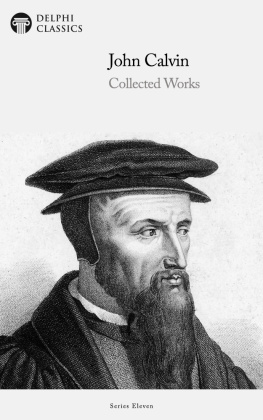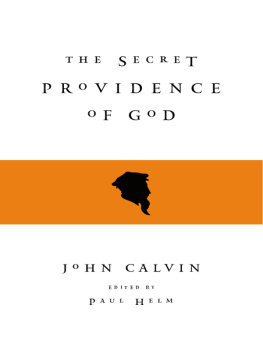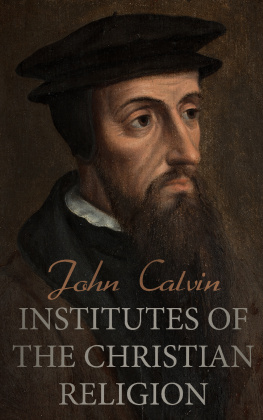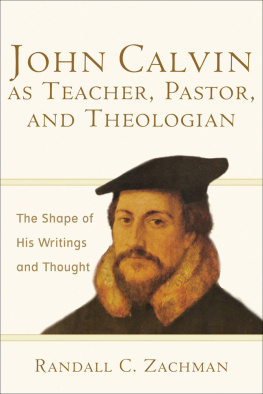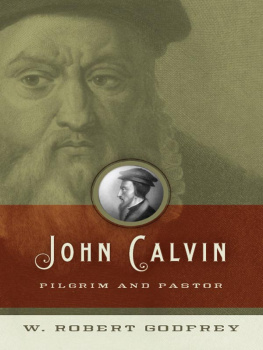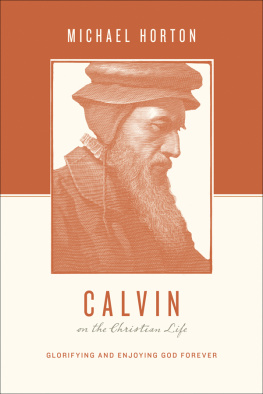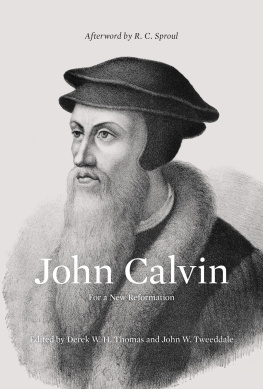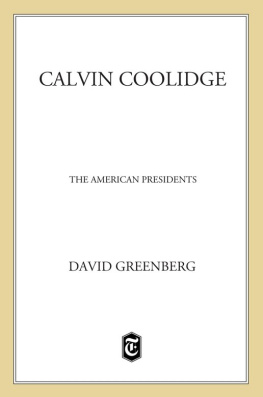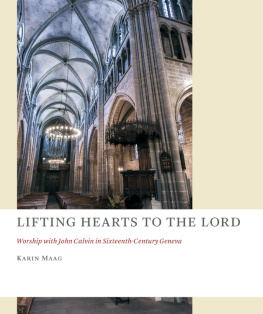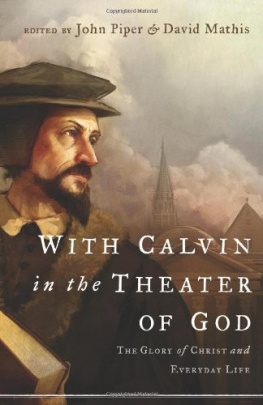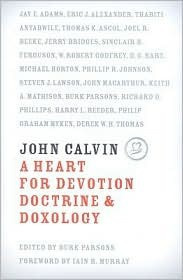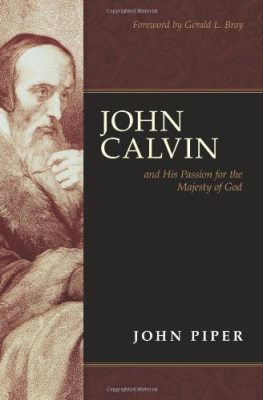
The Collected Works of
JOHN CALVIN
(1509-1564)

Contents

Delphi Classics 2020
Version 1


Browse our Main Series

Browse our Ancient Classics

Browse our Poets

Browse our Art eBooks

Browse our Classical Music series

The Collected Works of
JOHN CALVIN

By Delphi Classics, 2020
COPYRIGHT
Works of John Calvin

First published in the United Kingdom in 2020 by Delphi Classics.
Delphi Classics, 2020.
All rights reserved. No part of this publication may be reproduced, stored in a retrieval system, or transmitted, in any form or by any means, without the prior permission in writing of the publisher, nor be otherwise circulated in any form other than that in which it is published.
ISBN: 978 1 91348 749 2
Delphi Classics
is an imprint of
Delphi Publishing Ltd
Hastings, East Sussex
United Kingdom
Contact: sales@delphiclassics.com

www.delphiclassics.com

Explore Philosophy at Delphi Classics

The Books

Noyon, a town in the Oise department in northern France, 60 miles north of Paris John Calvin was born as Jehan Cauvin on 10 July 1509, at Noyon, Picardy.

Muse Jean-Calvin was built between 1927 and 1930, on the initiative of the Society for the History of French Protestantism on plans by Charles Letrosne at the presumed site of Calvins birthplace.

Noyons in the early seventeenth century
Psychopannychia (1534)

Translated by Henry Beveridge, 1851
In 1509 John Calvin was born in Noyon, a town in Picardy, a province of the Kingdom of France. He was the second of three sons that survived infancy. Calvins father, Grard Cauvin, enjoyed a prosperous career as the cathedral notary and registrar to the ecclesiastical court. Johns mother, Jeanne le Franc, was the daughter of an innkeeper from Cambrai; she died of an unknown cause in Calvins childhood, after having borne four more children. The father had intended his three sons Charles, Jean and Antoine for the priesthood. Young Calvin was particularly precocious and by the age of twelve he was employed by the bishop as a clerk. He received the tonsure, cutting his hair to symbolise his dedication to the Church. Close to this time, he won the patronage of an influential family, the Montmors. Through their assistance, he attended the Collge de la Marche, Paris, before entering the Collge de Montaigu as a philosophy student.
In c. 1526, Grard withdrew his son from his studies and enrolled him in the University of Orlans to study law. According to contemporary biographers, the father felt that Calvin would earn more money as a lawyer than as a priest. After a few years of quiet study, Calvin entered the University of Bourges in 1529, where he fell under the spell of the dynamic Andreas Alciati, a humanist lawyer. The intellectual movement of Humanism, which was gaining ground in Europe at the time, stressed the importance of classical studies. During his eighteen month stay in Bourges, Calvin learned Koine Greek, a necessity for studying the New Testament.
He broke from the Roman Catholic Church around 1530. In his Commentary on the Book of Psalms , Calvin explains his conversion as a sudden change of mind, brought about by God:
God by a sudden conversion subdued and brought my mind to a teachable frame, which was more hardened in such matters than might have been expected from one at my early period of life. Having thus received some taste and knowledge of true godliness, I was immediately inflamed with so intense a desire to make progress therein, that although I did not altogether leave off other studies, yet I pursued them with less ardour.
By 1532, he received his licentiate in law and published his first book, a commentary on Senecas De Clementia . After uneventful trips to Orlans and his hometown of Noyon, he returned to Paris in October 1533. During this time, tensions had risen at the Collge Royal between the humanists and the conservative senior faculty members. One of the reformers, Nicolas Cop, was rector of the university. On 1 November 1533, Cop devoted his inaugural address to the need for reform and renewal in the Roman Catholic Church. The address provoked a strong reaction from the faculty, who denounced his words as heretical, forcing Cop to flee to Basel. As his close friend, Calvin was implicated in the offence and for the next year he was forced into hiding. He remained on the move, sheltering with his friend Louis du Tillet in Angoulme and taking refuge in Noyon and Orlans. He was finally forced to flee France during the Affair of the Placards in mid-October 1534. In that incident, unknown reformers had posted placards in various cities criticising the Roman Catholic mass, to which adherents of the Roman Catholic Church responded with violence against the would-be Reformers and their sympathisers.
Published at his own expense, Calvins first theological work, Psychopannychia , reveals his humanist sympathies. The text is composed in the tradition of Erasmus, demonstrating a thorough understanding of classical scholarship. It attempts to refute the doctrine of soul sleep as promulgated by the Anabaptists. Calvin probably wrote the treatise during the period following Cops speech, but it was not published until 1542 in Strasbourg.
Next page
